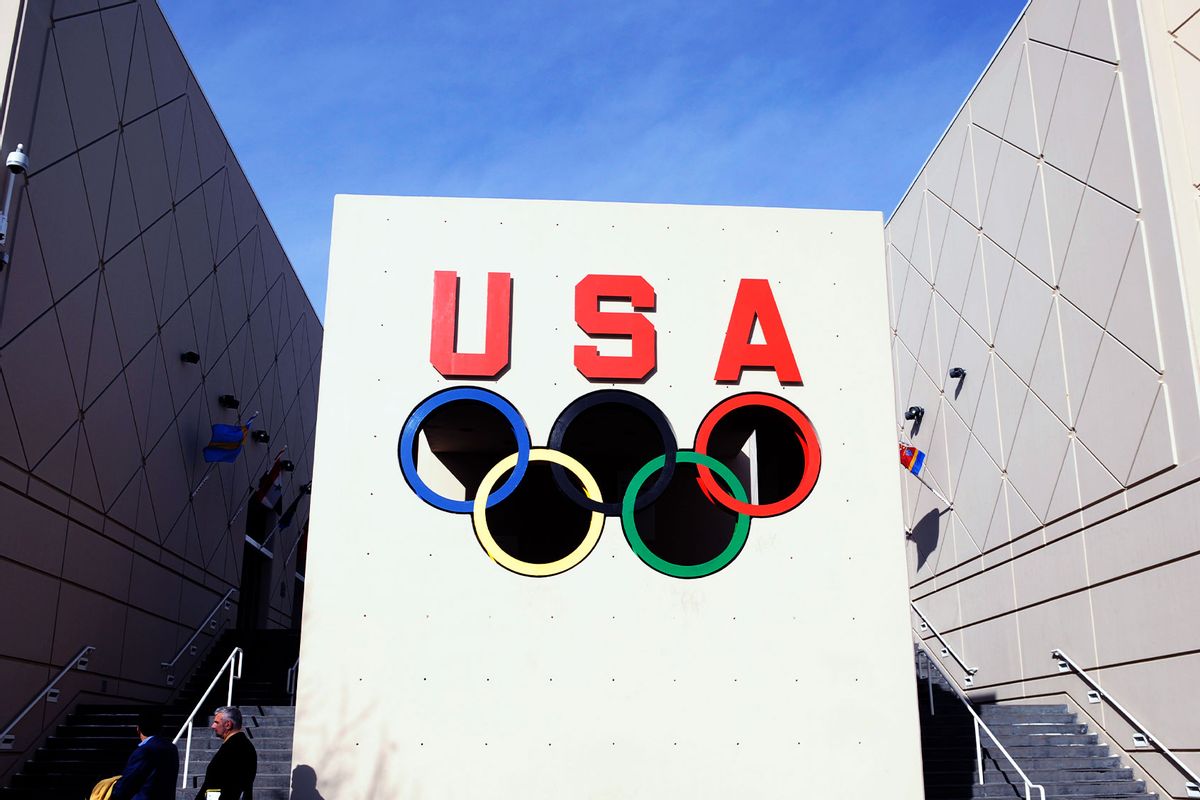The Commission on the Future of the U.S. Olympic and Paralympic Committee, established by Congress in 2020, last week issued its long-anticipated report. This 277-page document offers 12 recommendations, including the first serious proposals to wrestle with USOPC's blatant failures in handling the sexual abuse crisis in youth sports. One of those recommendations would amount to the first fundamental retooling of America's sports system since the Ted Stevens Amateur Sports Act of 1978.
The committee's Recommendation No. 3 calls for spinning off the U.S. Center for SafeSport as a government-funded entity, thereby removing it from both the influence and the administrative structure of USOPC and its national sport governing bodies, known as NGBs.
Recommendation No. 1 would break off grassroots youth programs in the various Olympic sports from the authority of NGBs, putting them instead under a newly created federal agency, while keeping programs aimed at elite athletes under the umbrella of the USOPC bodies. This is a crucial missing reform to the existing system, which currently puts kids at all levels of athletic ability and aspiration at the mercy of one-size-fits-nobody nonprofits, which are ultimately controlled by USOPC apparatchiks at the national headquarters in Colorado Springs.
As a reporter who been investigating this subject for more than a decade, I didn’t see such a strong report coming. The commission co-chair, University of Baltimore law professor Dionne Koller, last year downplayed the suggestion that a close examination of the SafeSport center was even part of her mission. The report in fact seeks to address multiple controversies within the U.S. Olympic movement, from pay equality for elite female athletes to the way bids are handled for American cities to host Olympiads. But it’s the sections about curbing abuse that have claimed the major headlines, and rightly so. My analysis is that Koller is a savvy hand in the ways of Washington, and realized that the commission’s best strategic play was to tamp down expectations prior to the report’s release.
Surely the commission is aware that wonky recommendations from a blue-ribbon panel (which included legendary Olympic hurdler Edwin Moses and gold-medalist swimmer Nancy Hogshead, now a women’s sports advocate) don’t automatically translate into implementation. Given that the U.S. Congress is deeply divided on just about everything, including such higher priorities as the future of democracy, it isn’t especially likely to focus on overhauling the amateur sports system anytime soon. Nor are the money-first apparatchiks of the Olympic movement likely to give up on their bastardized vision of SafeSport without a fight.
Whether or not Koller gets credit for steering the conversation in the direction of meaningful reforms, commenters and stakeholders made their voices heard during the last lap of the commission’s work. Last summer a leaked staff analysis found that the SafeSport agency was “in potential crisis.” The abuse scandals of USA Gymnastics were already well known, and other damaging media accounts have followed, outlining distasteful scenarios in many other sports, including speed skating and taekwondo. The biggest footprint of all was the scores of abuse claims and civil lawsuits at USA Swimming, which commandeers the after-school practices and year-round meets of as many as 500,000 American kids.
We need your help to stay independent
At a commission hearing last September, SafeSport center CEO Ju’Riese Colón pushed back, insisting that the agency had “pioneered a shift to a safer sports culture over the last six years.” In fact, the center's history of alleged corruption tells a different story. Salon readers may already know, among other things, about SafeSport’s highly paid chief investigator, who outright conned complainants before moving on to become the chief integrity officer of the entire federal court system.
In what might be regarded as a dramatic understatement, the new commission report finds that the SafeSport center “does not adequately employ trauma-informed practices,” a flaw that exacerbates the reluctance of victims to file claims out of fear that the process will be re-traumatizing. The agency “has never been able to find its footing," the report continues. "It must not, however, be allowed to become an enduring example of failure.” Colón is praised for her openness, at last year’s hearing, to a reconceptualization.
In a side note with historical resonance unacknowledged by the commission, the proposed independent spinoff of SafeSport is compared to the evolution of the U.S. Anti-Doping Agency, which the report maintains has been a rousing success. What is not mentioned is that USADA’s CEO, Travis Tygart, cut his teeth as a lawyer for USA Swimming, where he was implicated in abuse cover-ups during the regime of Chuck Wielgus, that entity's chief executive from 1997 until his death in 2017.
Want a daily wrap-up of all the news and commentary Salon has to offer? Subscribe to our morning newsletter, Crash Course.
Even if this commission's recommendations don’t make it to the finish line, its report will remain immensely valuable for its documentation of the history, and the skewed priorities, of the Amateur Sports Act. The current system “emerged in large part as a result of public attention to what was believed to be poor U.S. Olympic showings against Soviet-bloc nations,” as the report says, resulting in “a uniquely American balance” of public-private oversight, which is long overdue for a facelift.
The unknowable political factor, going forward, is about America’s sports parents, collectively intoxicated by the prospect of college scholarships and potential Olympic glory. Are they truly aware of what’s in their children’s best interests — and are they willing or able to stand together in support of the commission’s proposed reforms?
Read more
from Irvin Muchnick on scandals in amateur sports

Shares